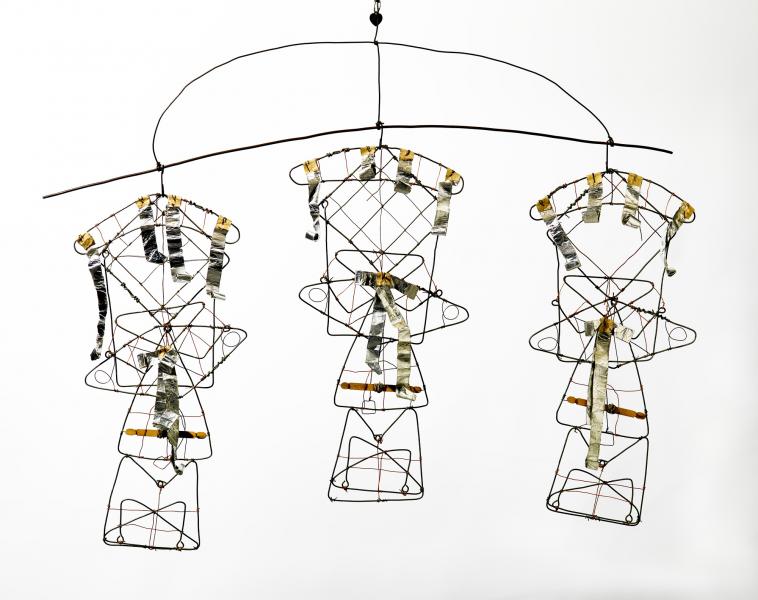Impostor Syndrome: “a problem I don’t especially wish to solve”
‘Impostor syndrome’ describes a problem I don’t especially wish to solve. Its remedy is to recognise that one does in fact belong. Yet I can’t convince myself I want to fully belong—indeed, I would experience belonging as a loss. The reasons for this are several, though all converge on a conviction that being ill-adapted has a value I would not forfeit.
Those are the words of Amy Olberding (University of Oklahoma), in a beautiful essay, “The Outsider,” at Aeon on life, work, class, family, academia, farming, and philosophy.
Here’s another excerpt:
When I took over the farm following my grandfather’s death, I initially despaired at all the loose bits and pieces that littered the place. Wire was my special enemy, for the barns were everywhere cluttered with it – wire salvaged from telephones, from appliances, from who-could-tell-where. I accumulated buckets of wire with a plan to dispose of them. Mercifully, I never got round to it, for I quickly learned the uncommon worth of wire. For example, it presently holds the muffler to my truck, secures the busted PTO cover on my bushhog, and seams caging around fruit-tree saplings, the better to protect them from the depredations of deer. My only concern about wire now is that I might need more.
The stock images sometimes used to depict the pitiable conditions or pathologies of the rural poor—images of homeplaces surrounded by wreckage and ‘trash’—tell a bigger story if you know how to read them. The broken-down car in the yard contains parts that still have use in them if need arises. That rusty freezer on the porch probably contains the dog’s food, since nothing beats an old freezer for storing feed where unsanctioned animals can’t get at it. Put plainly, if there is wire everywhere, there’s probably a reason. And if you can’t see the reason, there’s probably a reason for that too.
Farming’s field expediency has encouraged in me vitalising mental habits that are at odds with the orderly practices of academe. In life, it is a general good to see the strange, non-standard potentials in things, to use something built for one purpose for an entirely different purpose. So, too, it’s a plain good to fix what’s broke, whether mechanical or intellectual. And it’s good to become accustomed to a world that won’t always yield, to the recalcitrant material stuff that cares not for our larger, or even smaller, purposes—wire can’t, after all, do everything, no matter how much of it you have.
Read the whole thing, and savor the well-crafted and thoughtful writing of one of today’s wisest philosophers.



The article consistently gives off the impression that one’s lacking “the standard cultural and class equipage of academe” is a very rare thing in academic philosophy. In my experience, this is becoming increasingly less rare. Being a white person from a culturally-undernourished, middle class background is no longer a very rare thing in academic philosophy in America, I would venture to say. On the other hand, it really seems telling that someone whose grandparents owned farmland (owned thoroughly enough to be passed down within the family) and/or managed local government agencies is taken to count as an instance of an especially nonstandard academic *along class lines*. I suppose it would be useful to see data on average incomes for the parents of currently tenured philosophers. I would venture to guess that many who would, like the author, think of themselves as being non-standard along class lines would find that this is a misperception.
All that said, I’ve spent most of my time in public universities that are good but not spectacular, so maybe I suffer from a selection problem.
Loved.
Not only must we remove the scat, we must appear to have done nothing at all.
Occasional indications of or references to the scat may be acceptable if it renders us exotic or quaint.
This is an outstanding essay, and thanks to Amy for writing it. I learned a lot from it.
I share Amy’s objection to the term ‘imposter syndrome’. To have an imposter syndrome you’d have to think much more highly of the people among whom you don’t take yourself to fit. They’d have to be the real deal.
Most academic philosophers are not so impressive that Amy could reasonably feel this way – on the evidence of the essay here I’d say she’s more thoughtful and articulate than the vast majority! But there’s a real phenomenon at work in this kind of class-squatting (if I may distort her closing metaphor).
Waters (commenter above) is right that it’s easy to overstate just how outside the child of a landowning white farmer may be. But there are nonetheless real cultural differences between academic natives and non-natives. It’s a thing we should talk about and listen for. Amy’s tale is not very unusual, but it’s foreign enough, I expect, to many of her colleagues.
Every time I feel impostor syndrome coming on I think of unimpressive PhD dissertations I’ve read and mistakes I’ve seen PhDs make, then feel better.
Thanks for posting this, Justin. I got lots of feedback from people who share experiences similar to mine so I decided to create new professional association for us and anyone. Details here: https://departmentofdeviance.blogspot.com/2018/03/dod-ag-campus-starts-new-professional.html